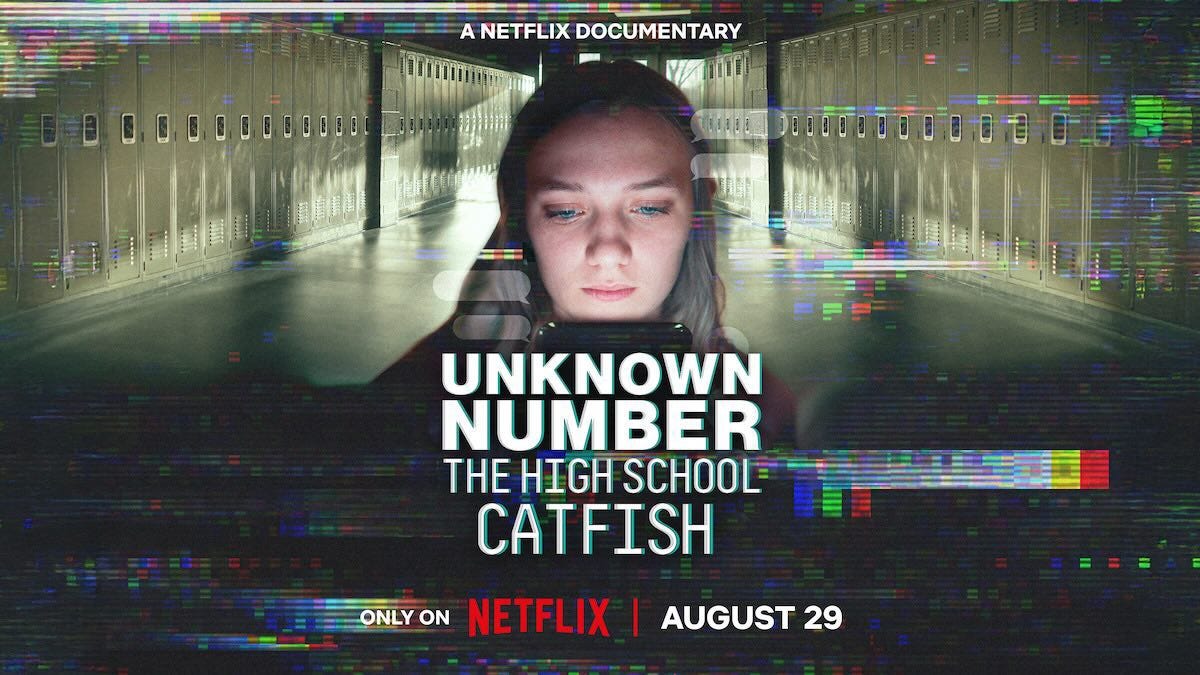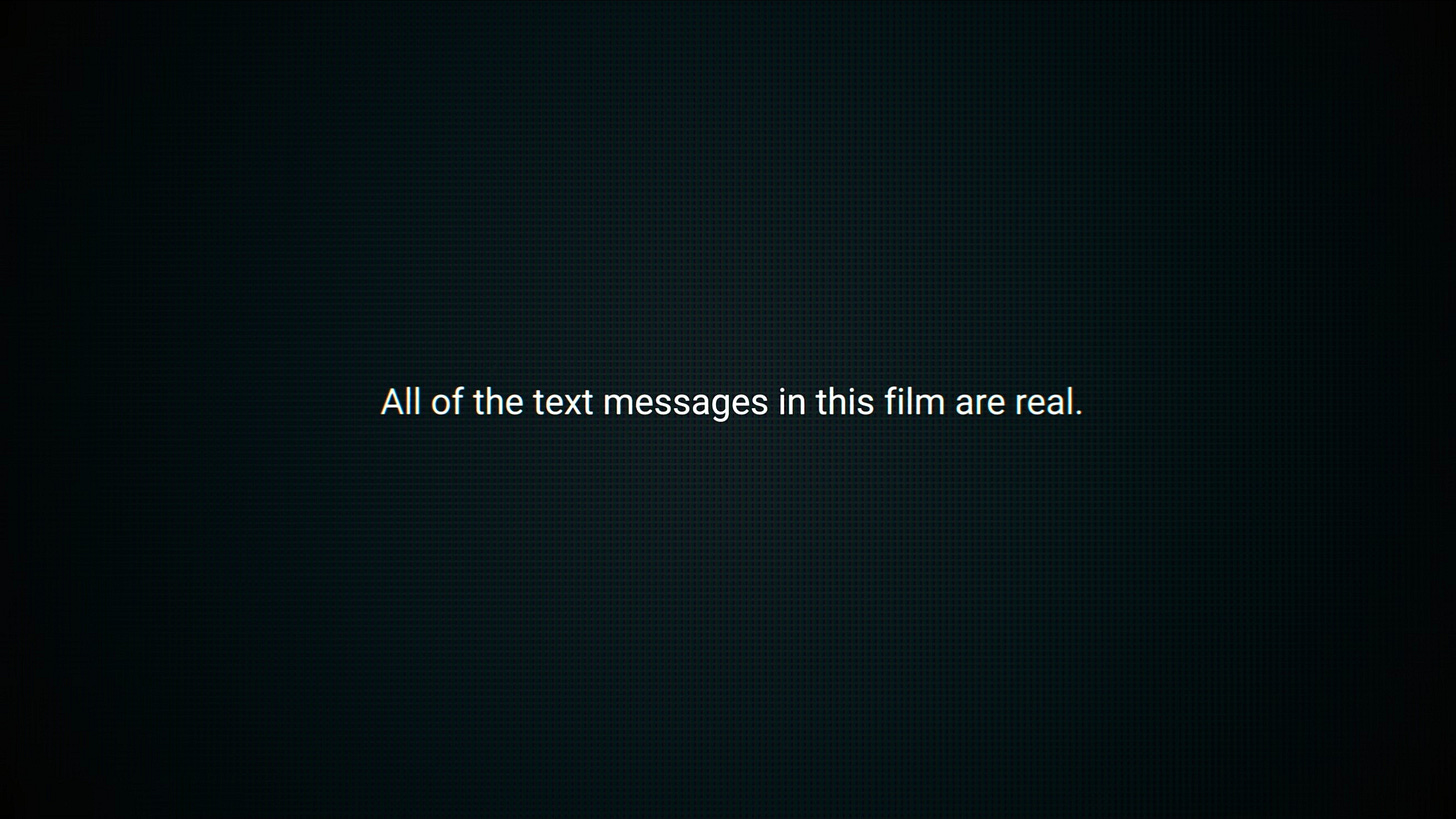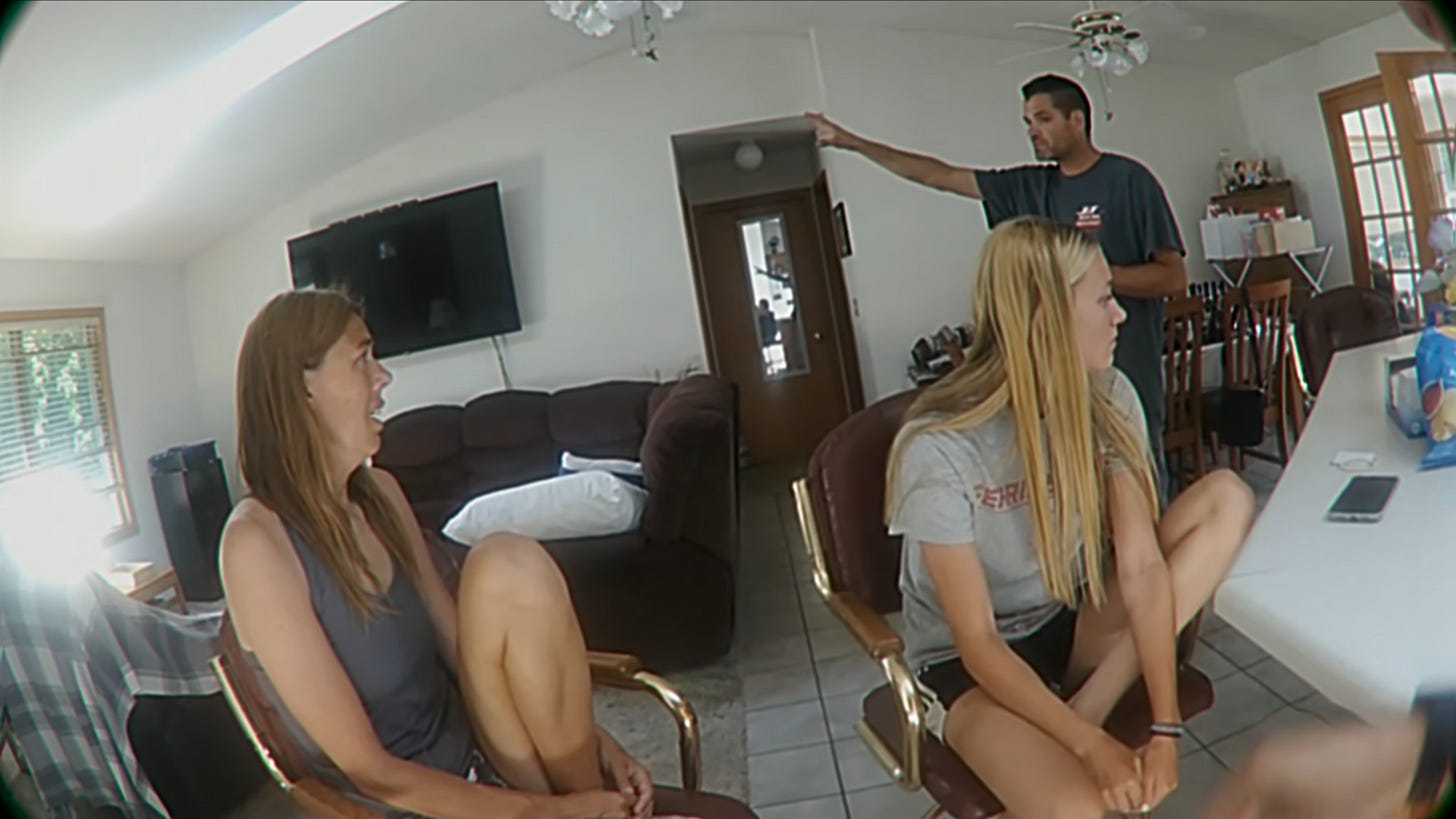Narcissistic and Psychopathic Mothers: Netflix's "Unknown Number" Documentary Traits and Behaviors, According to a Researcher
According to a trauma and psychopathology researcher.
What makes a parent narcissistic, attention-seeking and histrionic, or even psychopathic? One of the most disturbing documentaries on Netflix premiered recently, and social media is in an uproar about the stunning plot twist. Here is what we can learn about narcissistic and psychopathic traits in this documentary.
Disclaimer: The following contains spoilers for the Netflix documentary. Any remarks on people presented are only based on the documentary, and is not meant to be a diagnostic tool. It is based on research and written for educational purposes only.
Traits and Behaviors Seen in Netflix's "Unknown Number": The High School Catfish, According to a Psychopathology Researcher
A thousand harassing texts in the course of two years. A teenage couple cyberstalked and cyberbullied with taunting messages, telling them to break up and encouraging them to self-harm. Who could possibly be the culprit? In Unknown Number, viewers are shocked and perturbed to discover that it is not the high school bullies catfishing them, but one of their own mothers.
Unknown Number is a disturbing documentary precisely because the pathological makeup of the mother is difficult to pin down and exhibits a diverse number of traits and behaviors. But if I were to pinpoint the traits and behaviors that were illustrated in this documentary specifically from the perspective of a trauma and psychopathology researcher, here are the ones I would consider.
Psychopathic, sadistic traits.
To viewers, it can be a complex task to discern whether a mother crying in front of a camera is in the throes of genuine remorse as she discovers the potential harm she inflicted upon her daughter. But we have to look at patterns of behavior, not pity ploys. Without knowing the mother personally, we can still generally say that people who send explicit and graphic text messages to an innocent loved one unprovoked, especially a minor, would likely have some form of sadistic and psychopathic traits, especially given that these text messages were insulting, cruel, mocking, derogatory, encouraged self-harm and suicide, and seemed to point to an obsession with her daughter’s boyfriend whom she proceeded to cyberstalk long after her daughter’s relationship with him ended, to the extent of stalking her former boyfriend’s new beau and family.
Studies have also shown a link between sadistic, provocative cyberbullying and trolling and psychopathy. Psychopaths bait others in cyberspace with comments designed to emotionally destabilize and harm others. Psychopathic individuals inflict pain for a sadistic thrill out of boredom, manufacture chaos, stage pity ploys, and dupe others with delight. They also tend to struggle with jobs and finances due to their irresponsibility, impulsivity, criminal versatility, and failure to honor commitments and obligations which is also part of the criteria for psychopathy according to Hare’s revised psychopathy checklist. The mother in the documentary certainly exhibited many of these behaviors, given the way she concealed the state of the family’s finances and her job difficulties, placing her family in harm’s way, and staged pity ploys of remorse as she narrated her story, pointing to her own childhood trauma as a way to potentially gain more sympathy from the audience and the judge.
Attention-seeking histrionic traits.
Much like many histrionic, attention-seeking, and narcissistic mothers or parents in general, the mother in this documentary appears to be in a one-sided competition with her own daughter as she tried to pursue her significant other (something narcissistic mothers are also prone to doing). Her close friend in the documentary attests that she has always been “attention-seeking,” and in need of the spotlight. We find out that she sent graphic and explicit text messages to her daughter’s boyfriend to position herself as “sexually” superior to her daughter, mocking her about inappropriate acts she would do with her daughter’s boyfriend and encouraging her daughter to break up with him. This is an abhorrent form of not only attention-seeking, but illegal activity, and falls within histrionic traits that are provocative in inappropriate contexts. Her speech also tends to be dramatic and theatrical, positioned to center herself, as is common in histrionic individuals.
Narcissistic traits/grandiosity/self-centeredness.
In the documentary, the mother at times seemed gently excited to be interviewed, and it is telling that she even allowed herself the spotlight all while knowing she was the culprit all along. The grandiose excitement of conning others and hiding in plain sight, is not uncommon in individuals with narcissistic and psychopathic traits. Since her mother worked in IT, so she may have felt like a “genius” using her knowledge and background to cover her tracks by concealing her phone number through an app.
Munchausen syndrome by proxy (MSBP), known as factitious disorder imposed on another (FDIA).
Photo courtesy of Netflix.
The mother in Unknown Number is not a classic Munchausen by proxy case: rather than making her daughter physically ill to garner attention for herself, she sadistically tortures her daughter, making her daughter “mentally sick” through hurt and rescue tactics. This is common among both narcissists and psychopaths: they will harm you so you become conditioned to seek comfort from them, even when they’re the true culprit. When the daughter experiences overwhelming cyberbullying, she feels compelled to confide in and seek comfort from her mother, and disclose personal details from her life, which strengthens this twisted attachment. The FBI agent on the documentary called it "Munchausen by cyberbullying" which is also an incredibly apt description. She sought to make her daughter dependent on her and dysfunctionally trauma bonded while targeting her (the way she embraced her when caught and text messages love bombing her from prison show this).
The Big Picture
Unknown Number is a chilling reminder that the ones closest to you can sometimes be the same people harming you. If you are dealing with a person with dark triad traits and behaviors, be sure to consult a mental health professional and keep yourself safe. Although this case is disturbing in ways that surpass the “average” case of narcissism and psychopathy in parenting, the unnerving behaviors and traits exhibited may resonate with viewers who have experienced toxic family members, friends, or relationship partners with narcissistic traits and behaviors.




